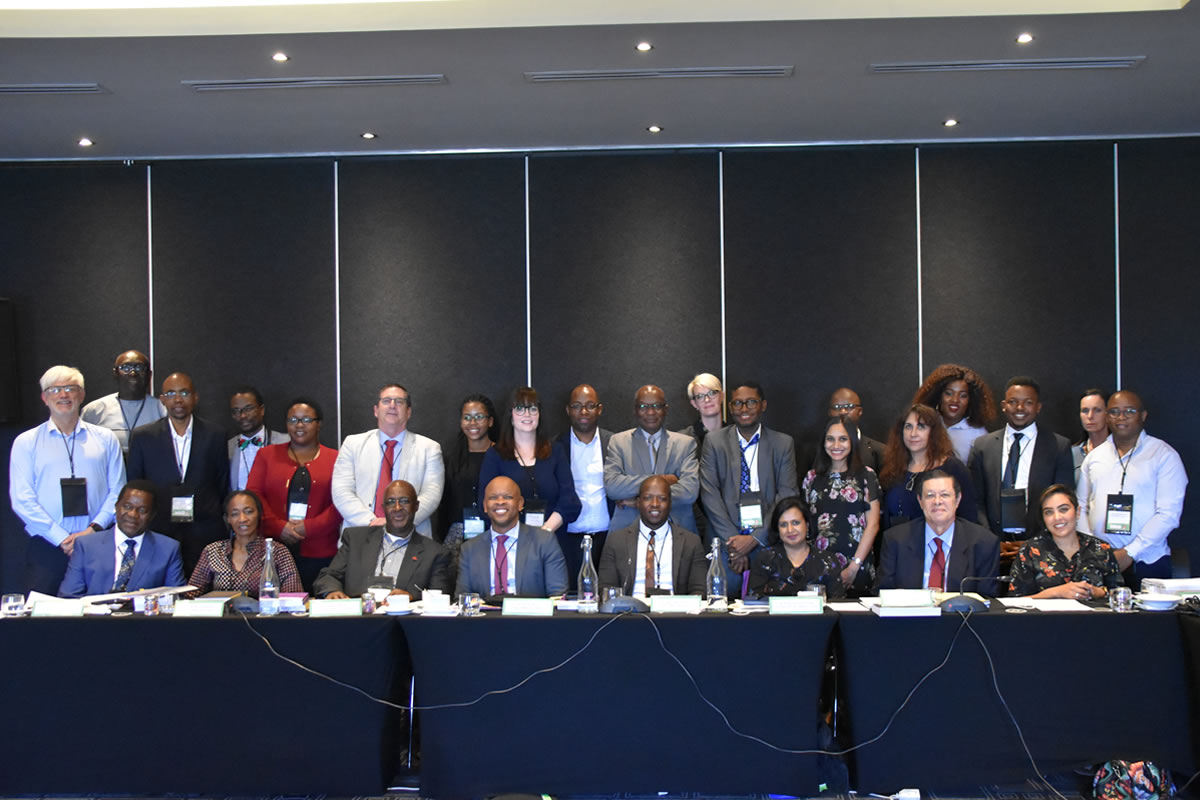A recent round table seminar brought together by the South Africa Human Rights Commission (SAHRC) and the Thabo Mbeki Foundation, with the support of the Centre for Human Rights, University of Pretoria, discussed South Africa’s attitude towards global and regional accountability mechanisms. Discussions focused on international criminal accountability, and on the ease of access to regional justice for human rights violations. Reasons for South Africa’s position were provided and interrogated.
The seminar, which took place on 11 September 2019 in Pretoria, South Africa, drew participants from the government, civil society and academic institutions. Of note in attendance were the Deputy Minister in the Department of Justice and Constitutional Development, Hon. John Jeffery; Former Vice President of the African Court on Human and Peoples’ Rights (African Human Rights Court) and current Tax Ombud of South Africa, Judge Bernard Ngoepe; the Chairperson of the South African Human Rights Commission Adv Bongani Majola; and standing in for the president of the African Court was the Principal Legal Officer Dr Mwiza Nkhata.
In recent years, South Africa has experienced a fractious relationship with the International Criminal Court (ICC). In relation to the withdrawal from the ICC, it was pointed out that there has been a resolution by the African National Congress to do so, against the background of perceptions that the ICC is no longer the same court that the country signed up for. One of these concerns is the seemingly concerted effort to indict only African leaders. It was also made clear that the government is concerned about its peace-making role it has on the continent which could be jeopardised if South Africa maintains the capacity to arrest leaders on its territory. The government has indicated its intention to resuscitate the International Crimes Bill, with a view to engage in nationwide public consultations on it. This process may culminate in South Africa reinstating its withdrawal from the ICC. Many concerns were raised about the possibility of South Africa’s withdrawal.
The ANC also called on South Africa to accept the Malabo Protocol. If ratified by 15 states, his Protocol would enter into force. Upon entry into force, the African Human Rights Court would be transformed into a court with a chamber dealing with international crimes (such as genocide) and transnational crimes (such as drug trafficking). While the government of South Africa intends to ratify the Malabo Protocol, it has expressed some reservations to the current Protocol and is fully behind participating in a process of review and amendment prior to ratification. One of the sticking issues with the Malabo Protocol is that it contains an “immunity clause”, which affords immunity from prosecution and being investigated to sitting heads of state and senior state officials. The South African government’s position has opposed the inclusion of the “immunity clause” even during the drafting process of the Protocol. Judge Ngoepe, who had served as a Judge of the African Human Rights Court, drew attention to the lack of political will of states to abide by that Court’s decisions. Based on his experience at the Court, Judge Ngoepe expressed serious doubts about the prospects of African states establishing a functional African Court with criminal jurisdiction. He expressed concern that states that have shown a reluctance to accept the African Human Rights Court would be even less likely to accept criminal jurisdiction.
The Protocol establishing the African Human Rights Court allows states to deposit a declaration, thereby allowing individuals and non-governmental organisations to directly access this Court. The discussions provided crucial insights into the reasons why South Africa has not accepted the possibility of direct individual access to the African Court. Some of these explanations are: South Africa is confident in the efficacy of its Constitution and Constitutional Court for the protection of human rights in its territory, it, therefore, does not consider it pertinent to ascribe to a regional court. The government of South Africa views the existence of the Constitutional Court, which is the final appeal court as an added layer of protection to citizens in addition to the High Court and the Supreme Court of Appeal. As such the government is wary of watering down the progressive human rights protection that the country has so far achieved, by allowing judges from other countries decide on issues such as the rights of gays and lesbians and affirmative action. There is also a general concern about the appointment process of the African Court’s Judges, whom the government feels lack democratic legitimacy. The government is determined to maintain its judicial sovereignty. The State is also concerned about giving direct access to the African Court to individuals and organisations as in their view, that could potentially open up litigation that could erode the human rights gains that the country has made so far.
In light of the issues discussed, the meeting reiterated the need to have international accountability mechanisms in place. This means that if South Africa would withdraw from the ICC before its acceptance of the revised Malabo Protocol, there will be a gap created which will leave the citizens vulnerable to a lack of accountability mechanisms for gross human rights violations. The meeting expressed support for South Africa’s acceptance of direct access to the African Court. While the effectiveness of the Constitutional Court is not in dispute, there will sometimes be cases whose remedies might not conform with the African Charter, thus requiring a regional court to step in. It was also agreed that South Africa is a leader within the continent thus its actions must be a positive influence on the rest of the states, and it must use its position to improve human rights protection on the continent. South Africa has already submitted itself to the African Charter by ratifying it, and by ratifying the Protocol establishing the African Human Rights Court, it already accepted the jurisdiction of the African Court, albeit only by way of indirect access. It should, therefore, accept the logical conclusion of depositing the declaration to allow direct access. South Africa should take the lead continentally to strengthen and render effective the African human rights system.
The meeting resolved to create an ad hoc platform to engage with government on these issues, under the leadership of the SAHRC, in line with its mandate to question and comment on the government’s policies.
For more information, please contact:

Professor of International Human Rights Law
Tel: +27 (0) 12 420 3228
frans.viljoen@up.ac.za


